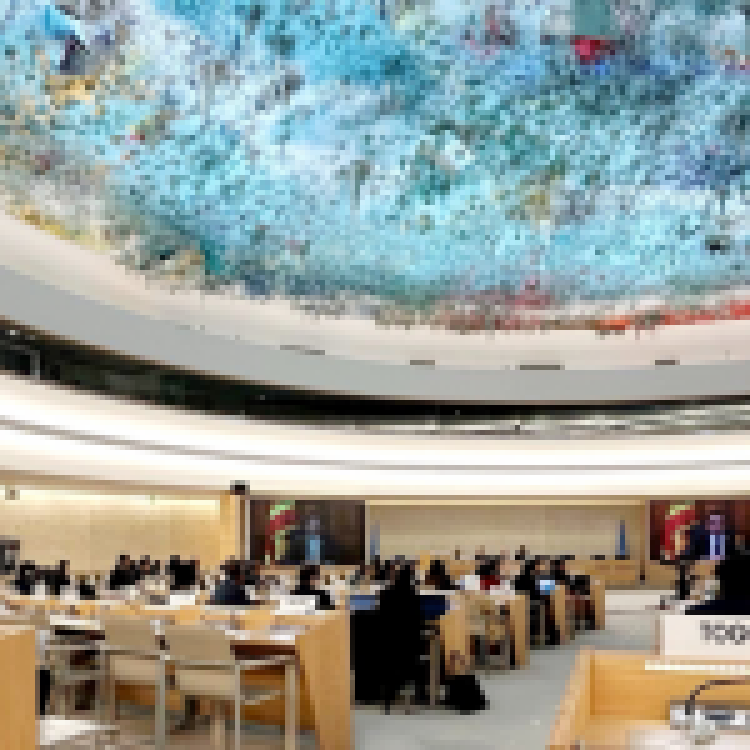People for Equality and Relief in Lanka (PEARL) told the UN Human Rights Council (UNHRC) that the Sri Lankan government “sells empty reconciliation mechanisms” as the current regime touts its latest commission to the international community.
Speaking in the Item 2 General Debate at the UNHRC yesterday, the US based advocacy organisation highlighted that Sri Lanka’s Commission for Truth, Unity and Reconciliation is “unlikely to address victims’ concerns or the root causes of the conflict.”
PEARL noted that it has been 15 years since Sri Lanka’s genocide against Tamils in 2009 and yet there has been “zero political will” from successive governments in pursuing accountability. During the final months of the armed conflict in 2009, Sri Lanka committed unlawful killings, enforced disappearances, torture and sexual violence of Tamils. 169,796 Tamils are unaccounted for and presumed to be dead.
In their statement, PEARL reiterated that Tamils “have consistently called for independent, international justice and accountability mechanisms, as well as their right to self-determination to address the root causes of the conflict and to end crisis and instability on the island.”
Last week, the UN High Commissioner Volker Türk told the Council that it is only through addressing the “root causes” of the conflict and ensuring accountability for rights abuses, that Sri Lanka will see “genuine reconciliation and sustainable peace and development”.
He added that sustainable peace and reconciliation will not be achieved in Sri Lanka "with regressive laws and authoritarian approaches".
In its oral update to the Council, Sri Lanka maintained that it categorically rejects the UN resolutions on accountability for mass atrocities but admitted that thousands of forcibly disappeared remain unaccounted for despite years of failed domestic mechanisms.
Yesterday, the Core Group on Sri Lanka expressed their concerns over legislative developments, including the Online Safety Act and the Commission for Truth, Unity and Reconciliation Bill.
They also urged Sri Lanka to engage with the UN High Commissioner's office and address Resolution 51/1 which was passed in October 2022. The resolution extends and reinforce the capacity of the Office of the High Commissioner to "collect, consolidate, analyse and preserve” evidence that may be used in future war crimes trials.
The resolution maintains that evidence collected could be used in “relevant judicial and other proceedings”, including in courts around the world, to prosecute those accused of violating international humanitarian law.


